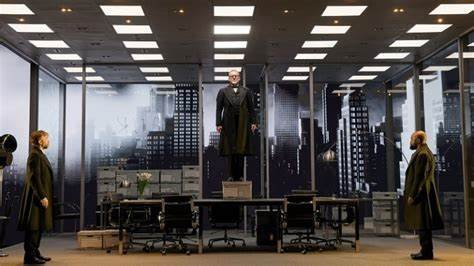A play about a failed company is probably pretty low on the list of things most dramaturges expect to be interesting and worth developing. The Lehman Trilogy is, of course, about a failed company, but more importantly it is about brothers. About a family, traditions, break from tradition. About the desire to support your family morphing over generations into the desire to have power, and then into the desire to have extreme, unbridled wealth. The desire to look right, to fit in the right crowds, to marry the right daughters of even more well connected wealthy men.
Really, Lehman Trilogy is a play about capitalism. Disparaging the idea that independence and self reliance are a good in and of themselves, because they lead ultimately to forgetting that others exist. It is unfortunate that the otherwise insightful and thoughtful script leans heavily on the Jewish background of the Lehmans — because this story is one about capitalism. About the deep seeded greed that (at least in the play’s eyes) is likely to sit in all of us, waiting for the right circumstances to seep out; a moment of opportunity, under the guise of help.
Sam Mendes’ direction is seamless. The three actors morph through time and space, through generations of characters whose traits evolve and yet remain the same thread. Moving through the rotating glass box as if on display. Es Devlin’s set design showcases the increasingly precarious nature of their world; as we reach the end, characters spend increasing amounts of time on top of things, piling things, all inside the glass box which appears suspended in the air.
The slick nature of the production almost smooths too easily over the moments of decision from the Lehmans; deciding to help plantation owners rebuild, deciding to support shady deals, and ultimately deciding to split the business and participate in the wild speculative real estate market of the 80’s, 90’s, and 2000’s which led to the 2008 crash. In this way the production made it easy to look down upon these men for having made these decisions, rather than see this gremlin of greed in each of us.
That’s perhaps a quibble, or difference in directorial choice (we all know how I like my audiences to feel uncomfortable). Certainly a formidable production and one worth seeing if you can.
